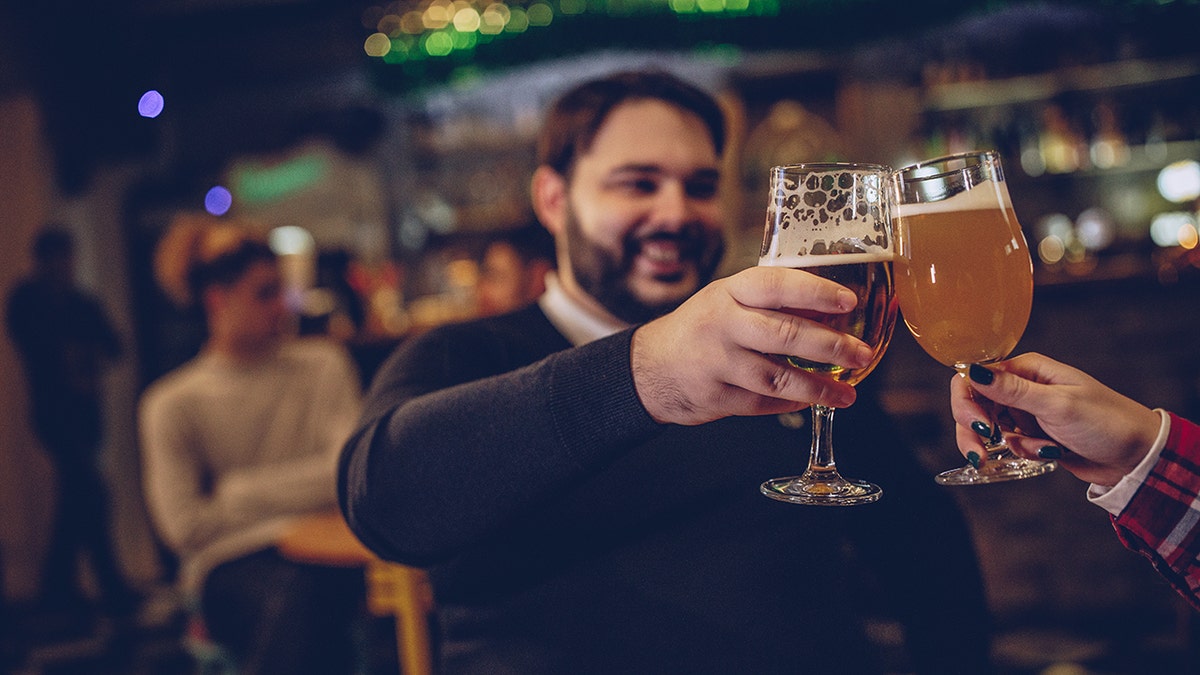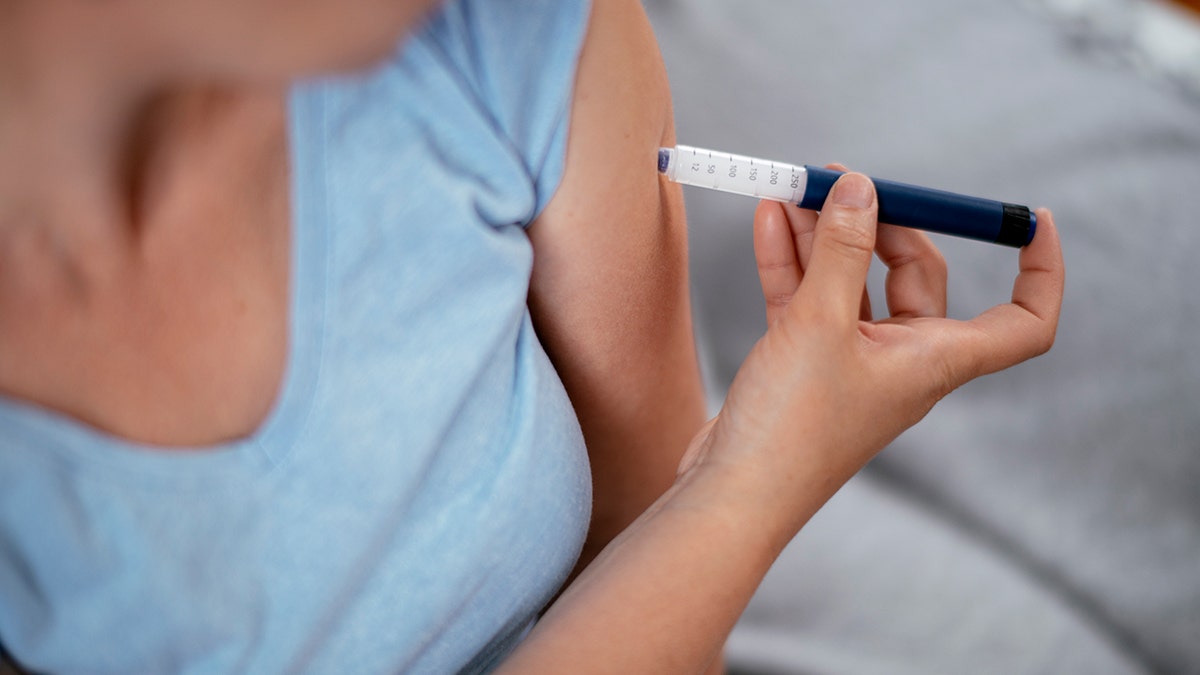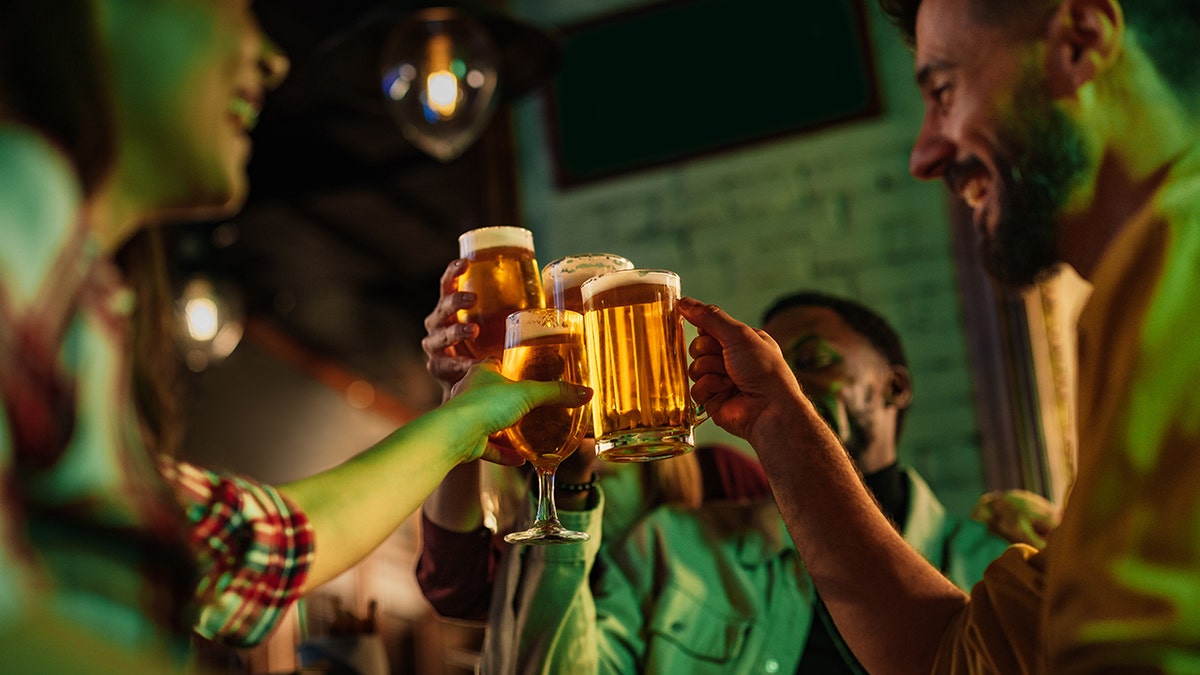GLP-1 drugs like Ozempic and Wegovy may reduce alcohol’s buzz, study finds
NEWYou can now listen to Fox News articles!
Popular drugs credited with shrinking waistlines and controlling blood sugar may also take the edge off alcohol’s buzz, according to a new study.
Researchers at Virginia Tech’s Fralin Biomedical Research Institute analyzed how 20 adults with obesity — half of whom had been taking GLP-1 receptor agonists for at least four weeks — reacted to alcoholic drinks compared to participants not on the drugs.
Previous studies have demonstrated that GLP-1 drugs are linked to reduced consumption in people with alcohol use disorder.
WEIGHT-LOSS DRUGS NOW LINKED TO CANCER PROTECTION IN WOMEN, MAJOR NEW STUDY REVEALS
GLP-1 medications — such as Ozempic and Wegovy, both semaglutide drugs, and Mounjaro, which contains tirzepatide — mimic the natural hormones that regulate blood sugar and appetite. The study included participants taking semaglutide, tirzepatide and liraglutide.
“We have evidence that these drugs do reduce drinking outside the lab,” study co-author Alex DiFeliceantonio, assistant professor and interim co-director of the institute’s Center for Health Behaviors Research, told Fox News Digital. “What we wanted to understand in this study was how.”

Researchers found that people taking GLP-1 medications felt a delayed, milder buzz. (iStock)
Both groups fasted overnight, ate an identical snack and then consumed measured alcoholic drinks designed to reach about 0.08 on a breathalyzer.
Researchers tracked the participants’ breath alcohol levels, cravings, appetite, nausea and blood sugar, and also asked, “How drunk do you feel?” on a scale of 0–10 over the course of four hours.
WHY MICRODOSING OZEMPIC COULD BECOME AS COMMON AS TAKING A MULTIVITAMIN
Those taking GLP-1s showed a slower rise in breath alcohol during the first 10 to 20 minutes and lower overall levels throughout. They also reported feeling less intoxicated early on.
The findings, which were published in the journal Scientific Reports on Oct. 15., align with how GLP-1 drugs are believed to work in the gut.
WHY OZEMPIC USERS ‘CAN BARELY FINISH A THIRD’ OF THEIR RESTAURANT ORDERS
The medications are known to delay gastric emptying, slowing down how quickly alcohol gets absorbed.
“People who drink know there’s a difference between nursing a glass of wine and downing a shot of whiskey,” DiFeliceantonio said in a Virginia Tech news release.

Study participants who used GLP-1s showed lower breath alcohol levels. (iStock)
“Faster-acting drugs have a higher abuse potential,” she went on. “They have a different impact on the brain. So, if GLP-1s slow alcohol entering the bloodstream, they could reduce the effects of alcohol and help people drink less.”
The team also found that overall alcohol cravings were lower in the GLP-1 group.
CLICK HERE TO GET THE FOX NEWS APP
Nausea and blood sugar changes were similar between groups, suggesting that the “less buzzed” effect wasn’t due to feeling sick.
More than half of U.S. adults drink alcohol, and about one in 10 have alcohol use disorder, the experts noted. While existing medications to reduce drinking act primarily on the brain, GLP-1s appear to work partly through the gut.

The study found that GLP-1 drugs may reduce alcohol’s effects on the gut, not the brain.
‘Open questions’
The authors cautioned that the trial was a small pilot study and not randomized, adding that all participants had obesity.
“More studies are needed to help establish how effective these drugs are, what the long-term effects are, if some are better than others, and what dose is most effective for reducing drinking verus controlling blood glucose, for example,” DiFeliceantonio said. “These are all open questions.”
CLICK HERE TO SIGN UP FOR OUR HEALTH NEWSLETTER
Akshaya Bhagavathula, Ph.D., an associate professor of epidemiology at North Dakota State University and a fellow of the American College of Epidemiology, said the study is too small to prove causation, and offers an “interesting signal, not a conclusion.”

Previous studies have shown that GLP-1 drugs can reduce alcohol intake and cravings. (iStock)
Bhagavathula, who was not involved in the study, cautioned that a weaker early buzz could actually lead some people to drink more.
“Future research should monitor total alcohol intake and craving patterns over time to understand if this compensation occurs,” he told Fox News Digital.
TEST YOURSELF WITH OUR LATEST LIFESTYLE QUIZ
Emerging data suggests that GLP-1 drugs could reshape addiction treatment, Bhagavathula pointed out.
“GLP-1 receptors influence reward signaling and craving, not only for food but for substances like alcohol and nicotine,” he said. “If confirmed in larger studies, these medications could represent a new class of metabolic-based addiction treatments — bridging endocrinology and behavioral health.”
CLICK HERE FOR MORE HEALTH STORIES
“It’s time to move beyond viewing them as ‘weight-loss mania,'” the expert added. “GLP-1 drugs regulate appetite, reward and metabolism in complex ways that reach beyond weight.”
He emphasized that public messaging should highlight the drugs’ medical value and the need for clinical oversight.
Fox News Digital reached out to GLP-1 manufacturers requesting comment.





